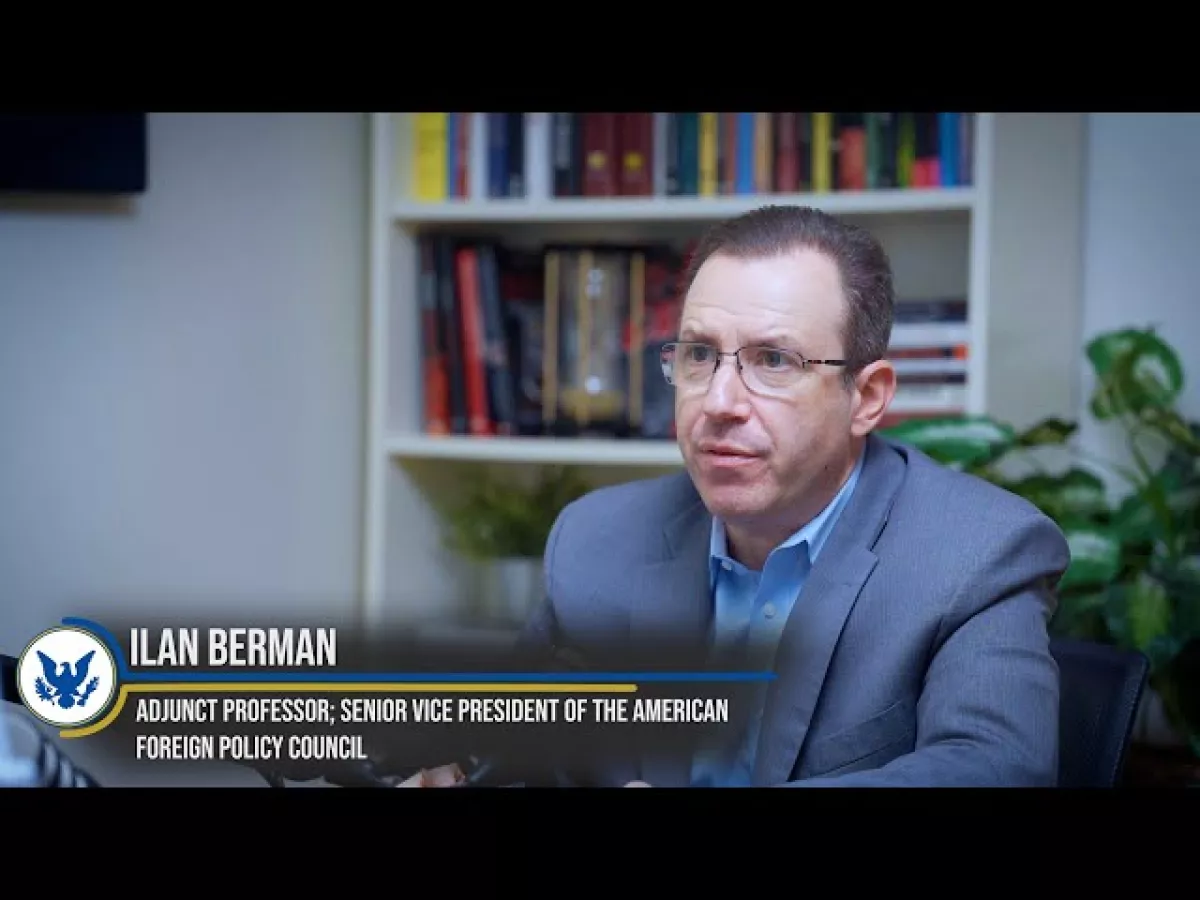Strategic ties, new horizons: Azerbaijan’s path to Abraham Accords Article by The National Interest
US-based The National Interest magazine has featured an article by Ilan Berman, Senior Vice President of the American Foreign Policy Council in Washington, DC, examining the potential integration of Azerbaijan into the framework of the Abraham Accords. Caliber.Az offers its readers an adapted version of the piece.

Azerbaijan’s enduring strategic partnership with Israel positions it as a compelling candidate for inclusion in the next phase of the Abraham Accords, presenting Washington with a valuable opportunity to extend regional normalization beyond the confines of the Gulf.
During his recent diplomatic tour of the Middle East, President Trump placed considerable emphasis on broadening the “Abraham Accords,” the regional normalization initiative inaugurated during his previous administration in 2020. In Riyadh, during discussions with Saudi Crown Prince Mohammad Bin Salman, Trump revisited the prospect of Saudi Arabia joining the Accords—a development that appeared imminent prior to the tragic events of October 7, 2023. Furthermore, in their landmark first meeting, Trump encouraged Syria’s newly appointed leader, Ahmed al-Sharaa, to establish ties with Israel in exchange for the sanctions relief Damascus is seeking.
Nevertheless, these two countries are not the most probable next entrants to the Accords. As highlighted recently by the Administration’s Middle East envoy, Steve Witkoff, the most promising candidate for further expansion of the normalization wave that began nearly half a decade ago is Azerbaijan, a South Caucasus nation.
The rationale behind this is compelling. While global attention has predominantly focused on Israel’s recent diplomatic achievements within its immediate neighborhood, Azerbaijan was, in fact, the first Muslim-majority country to normalize relations and trade with Israel—doing so in the early 1990s, soon after gaining independence from the Soviet Union.
Since that pivotal moment, bilateral relations have steadily flourished under the leadership first of Heydar Aliyev and subsequently Ilham Aliyev. In 2023, trade between the two nations approached $1 billion, primarily within the energy and defence sectors. Azerbaijan has emerged as Israel’s critical energy partner, supplying over 60 per cent of its gasoline requirements, and ranks as Israel’s second-largest defence client, accounting for nearly 10 per cent of all Israeli defence exports from 2018 to 2022.
This close cooperation aligns with Azerbaijan’s strategic interests. Baku seeks to harness Israel’s economic vitality and technological expertise—a strategy that proved instrumental in Azerbaijan’s 2020 conflict over the disputed Karabakh region.

Azerbaijan’s strategic latitude is further enhanced by its unprecedented freedom of maneuver in foreign policy, a product of both astute diplomacy and a favorable geopolitical context. In the aftermath of the 2020 Karabakh war, Azerbaijan has secured a strategic upper hand over its regional rival Armenia, even fostering a tentative cold peace with Yerevan. Meanwhile, Russia remains heavily engrossed in its ongoing conflict in Ukraine, limiting its capacity to meddle in South Caucasus affairs.
Concurrently, Iran—Azerbaijan’s southern neighbor—is currently experiencing its weakest political phase in decades.
These developments have afforded Azerbaijan’s government greater autonomy to diversify its strategic partnerships, pursue a westward-oriented foreign policy, and confidently reinforce its international alliances.
The Abraham Accords and Israel-Azerbaijan relations
Until its cancellation due to domestic political dynamics, Israeli Prime Minister Benjamin Netanyahu was scheduled for a high-profile state visit to Azerbaijan in early May—an engagement that would have marked only the third foreign trip by the Israeli leader since October 7, 2023.
Nonetheless, even without this top-tier diplomatic exchange, bilateral relations continue to thrive, as evidenced by the formal inauguration of Azerbaijan’s embassy in Israel in March 2023 and a series of high-level visits aimed at deepening cooperation across multiple sectors.
At a moment when the United States is endeavoring to revitalize the Abraham Accords, these developments should serve as both an encouraging sign and a strategic lesson. While current efforts primarily focus on the Persian Gulf, Washington would be wise to capitalize on opportunities further east and robustly support the burgeoning Israel-Azerbaijan partnership. Formal inclusion of Baku in the Abraham Accords represents the most logical and advantageous starting point.
Editor’s note: Ilan Berman is Senior Vice President of the American Foreign Policy Council in Washington, DC. An expert on regional security in the Middle East, Central Asia, and the Russian Federation, he has consulted for the US Central Intelligence Agency and the US Departments of State and Defence and provided assistance on foreign policy and national security issues to a range of governmental agencies and congressional offices.








